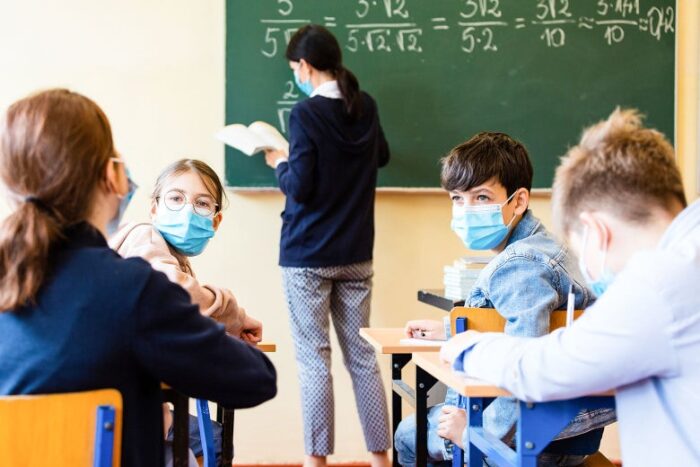With the number of covid-19 cases continuing to rise in India even as the government considers re-opening educational institutions starting 1 September, doctors have warned against hasty decisions as children may not be spared of the virus.

Though the number of children affected by the virus across India and the world is in the range of 2% to 5%, doctors say children are vulnerable when exposed to any virus. Right now, children have been sequestered at home, keeping them relatively safe. Most studies have found that children have mild to moderate symptoms if they contract the virus, but that does not mean they are safe from it.

“The presence of antibodies in children is strong and may protect the child from developing serious symptoms or reaching the ICU, but it is best not to expose them to the virus. It is not a wise decision to open schools. Social distancing can never be followed in a classroom situation. By nature, children touch just about everything and cough on each other’s faces,” says Dr Chandrika Rao, professor of paediatrics and senior consultant at MS Ramaiah Memorial Hospital, Bengaluru.

Within two weeks of schools reopening in the US, more than 97,000 children tested positive for the virus, prompting doctors to suggest caution. Children are more vulnerable to flu during the monsoon season. “Covid-19 also begins with flu-like symptoms throat pain, mild headache, fever,” said Dr. Rao.
A recent article in JAMA Paediatrics, based on observation of 145 children, noted that children under five with covid-19 have a higher viral load than older children and adults. “This study was not designed to prove that younger children spread covid-19 as much as adults, but it is a possibility. Meanwhile, ages 5-17 had the identical level as contaminated adults. As this is a novel virus, none of the children will have immunity to it,” said Dr Vikas Satwik, consultant neonatologist and paediatrician, Motherhood Hospital.
Child specialists say that children have not been tested enough since they’ve been indoors since March. If schools reopen and there is a surge in cases, India does not have the health infrastructure to treat children, they add.
While extended school closures, especially in rural India, may lead to children dropping out of the education system, Ranjekar said the solution is not mass re-opening. “The government can invest in digital technology for rural schools to ensure education is not stopped for the underprivileged. In many states where our foundation is working, teachers are meeting children in small groups and ensuring
If you send your children back to school, you may think you don’t have any control over what happens at school. However, you can contact school administrators and ask about their health and safety protocols. Consider it your duty to make sure your child’s school is taking the necessary precautions.


Comments are closed.